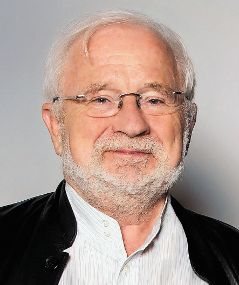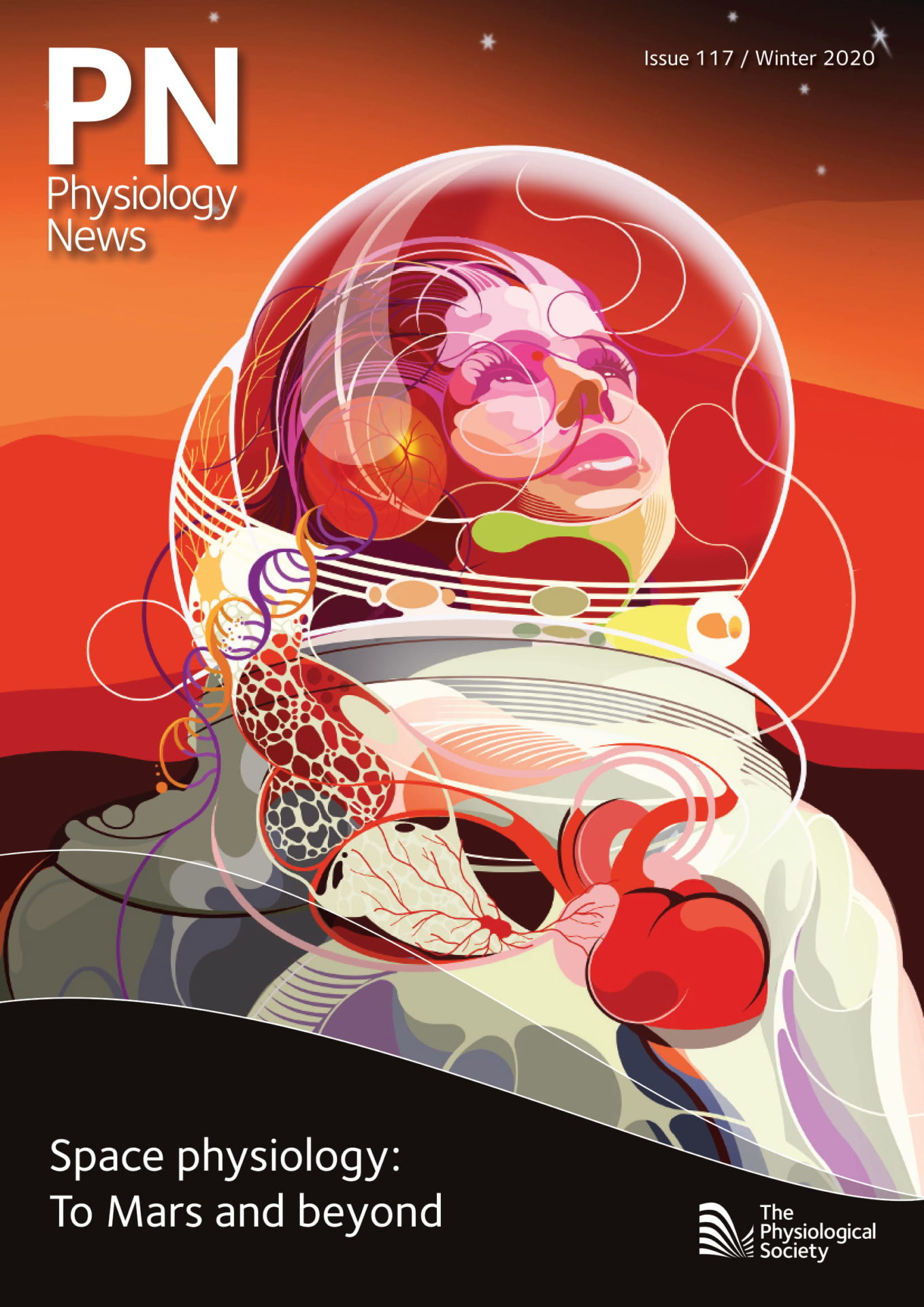
Physiology News Magazine
Obituary: Paul M Vanhoutte
1940 – 2019
Membership
Obituary: Paul M Vanhoutte
1940 – 2019
Membership
Written by Michael Collis (Retired) and Ian McGrath (University of Glasgow and University of Sydney)
https://doi.org/10.36866/pn.117.47

Paul M Vanhoutte died in Paris, France, on 23 August 2019 after a fall. He will be remembered as a leading figure in cardiovascular physiology and pharmacology and as a great friend and mentor by those who were lucky enough to work with him.
Born and trained as an MD in Belgium, Paul received his postdoctoral training in the Department of Physiology at the Mayo Clinic in Rochester with JT Shepherd, who surely infected him with the physiology bug. Paul’s subsequent career spanned academia, industry and three continents. He held professorial positions at the University of Antwerp, The Mayo Clinic, and Baylor College of Medicine. In 1992 he moved into industry as Vice President of R&D at the Institut de Recherches Internationales Servier, in France. However, in 2003, and until his death (he never retired), he returned to academia, becoming Distinguished Visiting Professor and the Director and Founder of the Biopharmaceutical Development Centre at the University of Hong Kong.
His early research evolved from a study of the control of the veins to understand why acetylcholine is a vasodilator. This led him to research the control of sympathetic neuro-effector junctions and of the interaction of vasodilator and vasoconstrictor substances with the vascular endothelium. His major scientific contribution was the analysis of the importance of endothelial cells for the control of vascular smooth muscle in health and disease. Publishing extensively in both The Journal of Physiology and the American Journal of Physiology, his scientific output was prodigious: he co-authored or edited 36 books, published 669 original research papers, and 574 editorials and reviews. On the editorial boards of numerous physiology and pharmacology journals, he was particularly exercised to ensure the highest quality of scientific publication, and became Editor-in-Chief of the Journal of Cardiovascular Pharmacology and an Associate Editor of the American Journal of Physiology (Heart and Circulatory Physiology).
Paul was a polymath but certainly regarded physiology as one of his prime disciplines. Physiology underlay his interests in pharmacology and medicine. At each International Congress of IUPS for many decades Paul was involved with the organisation of a series of satellite meetings called “Mechanisms of Vasodilatation”. It was at one such meeting that, at Paul’s invitation, Robert Furchgott gave one of his first talks on his new ideas about an endothelium-derived relaxant factor, the seminal work that led to a huge explosion of work on the physiological roles of the endothelium, and ultimately to Furchgott’s Nobel Prize in 1998. It is hard to underestimate Paul’s contribution to this field. Named lectures have been established in his honour and he received honorary doctorates from nine universities. A member of many learned societies, he was also one of the few who have been awarded honorary membership of both The Physiological Society (in 2009) and The British Pharmacological Society.
Those of us who had the privilege to work with him will always remember his charismatic scientific leadership and guidance. He had unbounded energy and enthusiasm for science, for people and for life. He travelled prodigiously, meeting all the leading cardiovascular researchers. We will not forget the metal briefcase (or was it two?) containing slides that he carried around on the off-chance that he would be expected to concoct a talk. On a visit to Scotland he actually gave two entirely different talks for different audiences, all made up in about half an hour, once he knew who the audiences were.
Paul inspired a genuine warm loyalty from all who ever spent time with him. At every major scientific conference, there would be an impromptu Paul Vanhoutte dinner attended by all the ex-trainees attending the conference. If there was a conflict with any other event, it was the other event that would be missed. In particular a surprise 60th birthday gathering was held for him in Paris where over 100 former mentees from around the world paid their way to celebrate the day.
Paul was generous and astute with advice, great fun to work with and also to relax with after work. He enjoyed good company, good food, good wine and good jokes (and the occasional cigar). He had many memorable sayings such as “I feel a paper coming on” and “There are three kinds of people, those who make things happen, those who watch what happens and those who wondered what happened”. He was in the first category and made good things happen for the young scientists he trained during his career and for his co-workers.
Paul Vanhoutte leaves a wife Jacqueline, four children and seven grandchildren. All who knew him will remember his scientific insight and influence, his “art-de-vivre”, the seemingly impossible travel schedules, his quick wit and his infectious laugh.
Further reading
Boulanger et al. (2019).Tribute to Paul M. Vanhoutte, MD, PhD (1940 – 2019). Arteriosclerosis, Thrombosis, and Vascular Biology 39, 2445 – 2447. DOI: 10.1161/ATVBAHA.119.313461
See also the “Paul M. Vanhoutte – Commemorative Issue” published by The Journal of Physiology in November 2019. DOI: 10.1113/JP279124
